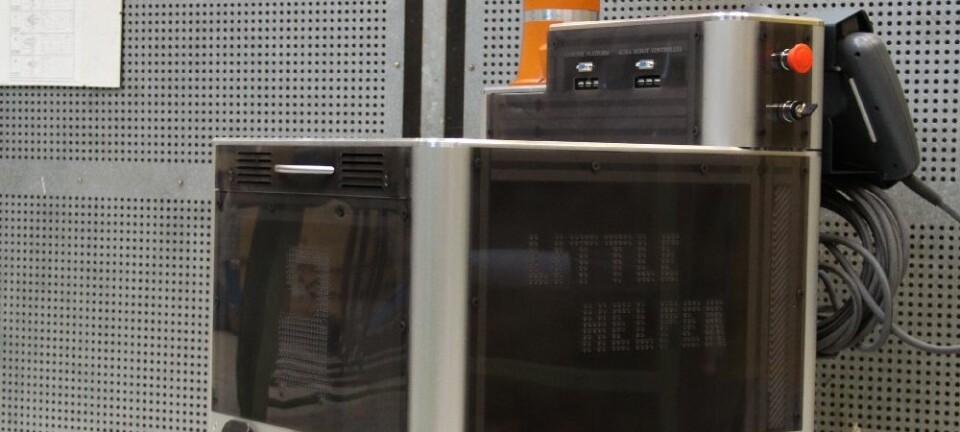This article was produced and financed by University of Stavanger

Tablets are too difficult for old people
Growing numbers of elderly people in Norway are being offered by the welfare services to use tablet computers for controlling functions in their home. But many find an iPad too difficult to understand.
Denne artikkelen er over ti år gammel og kan inneholde utdatert informasjon.
“Those who need the technology most are least able to grasp it,” says project nurse Hilde Alvseike Dahle in the Norwegian Centre for Movement Disorders at Stavanger University Hospital.
Together with colleague and neurophysiologist Kolbjørn Brønnick, she has been doing research on the use of such devices for welfare purposes among old people.
They studied how far the elderly can use an iPad for remote control of lights and heating in their homes.
Intelligent
In the study, 28 old men and woman in the city of Stavanger have tried out such “intelligent house” technology where they live.
They were allowed to use an iPad over four months before doing a practical test to see if they could turn lights on and off with this device. That was followed by an interview about their ability to use technical aids.
“Our study shows that more than half the elderly people were unable to use an iPad to control the lights at home,” observes Dahle.
“That’s certainly food for thought, given that politicians, local authorities and the health service are constantly acclaiming tablets as a solution for tomorrow’s health challenges.”
Steady growth in the number of old people in Norway and other countries is forecast, which poses a challenge for local government and the health authorities.
Faced with the need to ensure good care for all senior citizens, one solution is to adopt technological solutions which allow more of them to remain longer in their own homes.
Sceptical
But Dahle is sceptical about the exaggerated faith in tablets for all the elderly. She believes that distinctions must be drawn between different groups, and that technological aids must be tailored for each user.
“We need to be careful about introducing new technology for old people with impaired cognition, particularly if it requires them to learn something new.
“It’s by no means given that the elderly can manage to turn the lights on and off from a screen when they’ve used a switch on the wall all their lives.”
Learning new technology is difficult because old people lack previous experience of using such solutions, she points out. That gives them few hooks on which to hang new knowledge.
In Dahle’s view, many people fail to understand the big problems faced by many senior citizens in using innovative technology.
“Instead, elderly people with impaired cognition should be offered an automated ‘intelligent’ home, where the lights come on by themselves when somebody enters a room.”
She emphasises that many sufferers from dementia and impaired cognition could still be in good physical condition and have good motor skills.
But this is not the group of elderly who should be offered an iPad to stay at home longer. Automated technology providing “invisible” services could then be an effective alternative.
Relevant
“Our study found that age in itself was not a particularly relevant parameter in determining who could use an iPad,” Dahle explains.
“Although the risk of dementia rises as people get older, a 90-year-old not suffering from this condition can readily use an iPad to control functions in their own home. The most important consideration is tailoring the technology to its user.”
The study she has conducted with Brønnick forms part of a development project on welfare technology involving Stavanger University Hospital, the City of Stavanger, Randaberg local authority, Lyse Altibox and the UiS.
------------------------
Read the Norwegian version of this article at forskning.no

































